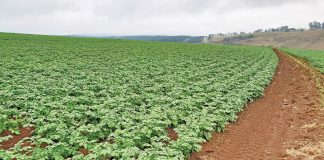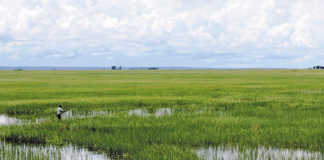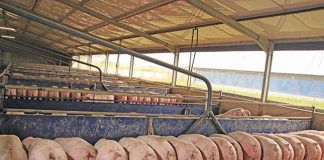
It was a warm summer’s day and we were enjoying a stroll through Bruce’s avocado and macadamia orchards, where the trees dripped with young nuts and fruit.
“Just look at the bees buzzing around on the flowers,” said Bruce. He bent down and pointed. “This is one of the grasses we specially sowed to keep the nectar flow going when the trees aren’t in flower.”
READ Black youths must be made aware of agri sector careers
He explained how he had set up shallow troughs near the hives to give the bees access to water during dry times and how, when there was no natural nectar available, he fed them with sugar-water.
As I drove home, thinking about his efforts to build up his bee population, I remembered two people whose books had influenced me greatly in my choice of farming as a career.
US farmer Louis Bromfield (1896-1956) was perhaps the first to coin the terms ‘self-sustaining’ and ‘organic’, novel concepts at a time when agricultural chemicals were lifting farm yields. In Pleasant Valley (1945, reprinted in 2008) and Malabar Farm (1948, reprinted in 1999), he expounded his philosophy and environmentally friendly methods.
The other person was our own Edgar Matthews (1891-1976), whose 1956 book, Tukulu – The Rebirth of a South African Farm, tells how, inspired by Bromfield, Matthews rebuilt his drought-devastated Eastern Cape stock farm.
Harsh production practices
Back home, I found my copy of Tukulu, dusted it off and took a trip down memory lane, re-reading Matthews’ voyage of discovery, where he worked with nature to make his farm ‘drought-proof’.
It’s a wonderful book, which should be mandatory reading for every farmer. As I read, though, I was quite shocked to realise how far the hard world of commercial agriculture had driven me away from Matthews’ philosophy and methods.
READ The seven habits of highly effective farmers
While there have been changes for the good in recent years, the production practices of the citrus and sugar industries in which I operated were far removed from the gentle and sensitive environmental approaches espoused by Bromfield and Matthews.
These generally involved large commercial farms, the establishment of which required wholesale destruction of the natural habitat (as it does with most large-scale crops).
To be financially viable, they also called for extensive use of agricultural chemicals.
While environmentally sensitive farmers such as Bruce are planting grasses to carry the bees through the season, we regarded anything other than a citrus tree or a cane plant as the enemy, and killed it as soon as possible.
READ Farmer behaviour, what type of farmer are you?
“Down the ages, wherever mankind has inhabited the earth, man has destroyed the natural covering of the land,” writes Matthews in Tukulu.
“Great forests have been cut down, the land has been tilled to grow food, and where the soil has become impoverished, man has moved to pastures new.
Instead of working alongside and with Dame Nature, mankind thought more of personal wealth, and realising that his span of years was a mere page in the book of Time, his actions were those of a sick man trying to accomplish the impossible in a very short period.”
Have our farmers, caught up in the short-term pressures of today’s technology-driven world, lost sight of the most basic requirement for maintaining a sustainable business: namely, protecting the resource which makes it possible for us to produce food or fibre?
How will you look back on your time as a farmer? Confident that you’ve worked alongside nature and left a farm capable of delivering a life for those who remain?
Or, a bit like me, perhaps; somewhat shamefaced that you haven’t lived up to the ideals of Bromfield and Matthews?











